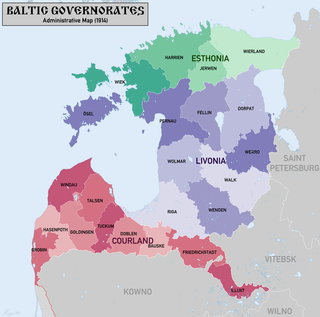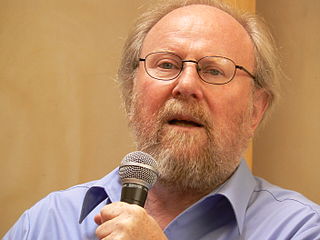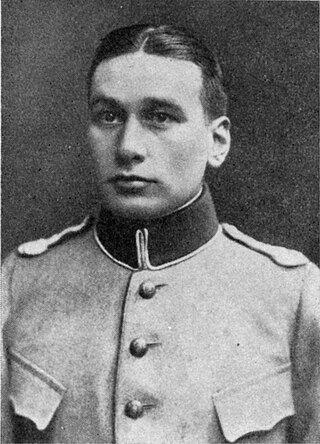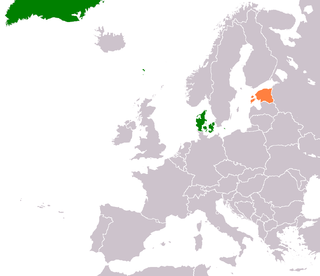Related Research Articles

Hans-Dietrich Genscher was a German statesman and a member of the liberal Free Democratic Party (FDP), who served as Federal Minister of the Interior from 1969 to 1974, and as Federal Minister for Foreign Affairs and Vice Chancellor of Germany from 1974 to 1992, making him the longest-serving occupant of either post and the only person to have held one of these positions under two different Chancellors of the Federal Republic of Germany. In 1991 he was chairman of the Organization for Security and Co-operation in Europe (OSCE).

Harald Franz Schmidt is a German actor, comedian, television presenter and writer best known as the host of two popular German late-night shows.
The social market economy, also called Rhine capitalism, Rhine-Alpine capitalism, the Rhenish model, and social capitalism, is a socioeconomic model combining a free-market capitalist economic system alongside social policies and enough regulation to establish both fair competition within the market and generally a welfare state. It is sometimes classified as a regulated market economy.

Günter Verheugen is a German politician who served as European Commissioner for Enlargement from 1999 to 2004, and then as European Commissioner for Enterprise and Industry from 2004 to 2010. He was also one of five vice presidents of the 27-member Barroso Commission. After his retirement, he is now honorary Professor at the European University Viadrina in Frankfurt (Oder).

The Baltic governorates, originally the Ostsee governorates, was a collective name for the administrative units of the Russian Empire set up in the territories of Swedish Estonia, Swedish Livonia (1721) and, afterwards, of the Duchy of Courland and Semigallia (1795).

Erhard Busek was an Austrian politician from the Christian-conservative People's Party (ÖVP). Throughout his political career, he was widely regarded as one of the leaders of the party's liberal wing. He was coordinator of the South-Eastern Cooperative Initiative (SECI) and chairman of the Institute for the Danube Region and Central Europe.

Wolfgang Thierse is a German politician of the Social Democratic Party (SPD). He served as the 11th president of the Bundestag from 1998 to 2005.

The West Russian Volunteer Army or Bermontians was a pro-German military formation in Latvia and Lithuania during the Russian Civil War in 1918–20.

Gustav Adolf Joachim Rüdiger Graf von der Goltz was a German army general during the First World War. He commanded the Baltic Sea Division, which successfully intervened in the Finnish Civil War in the spring of 1918. Goltz stayed with his troops in Finland until December 1918 representing German interests, and in practice ruled the country as a military dictator during this period. After the Armistice of 11 November 1918, Goltz commanded the army of the local German-established government of Latvia, which in 1919 was instrumental in the defeat of the Russian Bolsheviks and their local allies in Latvia. The troops commanded by Goltz suffered a defeat against Estonia in 1919 and were eventually unsuccessful in retaining German control over Latvia and Estonia after World War I.

Taavi Veskimägi is a former Estonian state official and politician and the managing director of the Estonian electric power transmission system operator Elering.
Volker Rolf Berghahn is a historian of German and modern European history at Columbia University. His research interests have included the fin de siècle period in Europe, the origins of World War I, and German-American relations. He received his M.A. from the University of North Carolina at Chapel Hill in 1961 and his PhD, under supervision of Francis L. Carsten, from the University of London in 1964. Prior to teaching in the United States, Berghahn worked in the United Kingdom and Germany. In 1988, he accepted a position at Brown University, and moved to Columbia ten years later.

Carl Axel Mothander a former Swedish reserve officer; major in the White Finnish Army in the Finnish War of Independence 1917/18, organizer of the Finnish White Army's field hospitals promoted to major; commander of the Swedish volunteers in the Estonian War of Independence promoted to lieutenant colonel. After the war, in 1928, Mothander settled in Estonia, as he married a Baltic German Baroness, Benita von Wrangel (1878–1967). Thereafter Mothander tried to take the role of mediator between the Estonians and the Baltic Germans. The Baltic Germans' effective rule and class privileges had come to an end with the establishment of the Republic of Estonia. On October 10, 1919, The Land Reform Act was passed by the Estonian Constituent Assembly. This act confiscated and redistributed the Baltic German estates, ending 700 years of possession of the regions that the Germans had gained after the Livonian Crusade.

Denmark–Estonia relations refers to the historical and current diplomatic relations between Denmark and Estonia. Denmark has an embassy in Tallinn, while Estonia has an embassy in Copenhagen. Denmark recognized and established diplomatic relations with Estonia on 5 February 1921. Relations were renewed on 24 August 1991 with Denmark never having recognized Soviet occupation of the country.

Claudia Crawford is a German politician of the Christian Democratic Union (CDU), who became the youngest cabinet minister in German history whilst in office from 1994–98 and was Federal Minister for family, seniors, women and youth affairs and, by virtue of this office, presided over the European Union Council of Ministers. Nolte is a Catholic and is active in the Catholic community. She is married to investigative journalist David Crawford of CORRECT!V. With her marriage in July 2008, she took the name of her husband.

With the Capitulation of Estonia and Livonia in 1710 the Swedish dominions Estonia and Livonia were integrated into the Russian Empire following their conquest during the Great Northern War. The Livonian nobility and the city of Riga capitulated on 4 July (O.S.) / 15 July 1710 (N.S.), Pernau (Pärnu) in August, and the Estonian nobility and the city of Reval (Tallinn) on 29 September (O.S.) / 10 October (N.S.). Russia left the local institutions in place and confirmed the traditional privileges of the German nobles and burghers as was established in Privilegium Sigismundi Augusti, especially with respect to the Protestant faith. The land reform of the so-called reduction which had been introduced by the Swedish king Charles XI, and transformed many serfs to subjects of the Crown, was reversed.

Lars Peter Feld is a German economist who currently serves as director of the Walter Eucken Institut and as Professor for Economic Policy at the University of Freiburg. From 2020 to 2021 he also chaired the German Council of Economic Experts. Federal Minister of Finance Christian Lindner made Feld his personal economic policy advisor in February 2022.

Friedrich Georg von Bunge was a Baltic German legal historian. He was the older brother of botanist Alexander Bunge (1803-1890).

Peeter Järvelaid is an Estonian legal scholar and historian. Järvelaid is a professor in the University of Tallinn. He has developed semiotic and personality-centered research direction, writing hundreds of articles mostly about the European and Estonian legal history and education, published in Estonian, English, German, French, Russian, Latvian, Finnish, Lithuanian and Swedish. Since 2006 his studies have been increasingly concentrated on the international relations in the 20th century, which among others has required intensive archival researches in German and Polish archives. Since 2012 Järvelaid has placed his research emphasis on the German diplomatic missions, with a specific interest in German diplomatic representation in Tallinn.

Herbert Köfer was a German actor, voice artist, and television presenter. He was the first German TV news presenter for the East German Deutscher Fernsehfunk, and also presented the station's last news before the reunification of Germany. His first theatre engagement was in 1940, and he kept acting until the age of 100. Köfer played an SS-Hauptsturmführer in the 1963 film Nackt unter Wölfen. He was known for detective series such as Polizeiruf 110 and for comic roles. He founded his own troupe, Köfers Komödiantenbühne, in 2003, and published memoirs.

Egils Levits is a Latvian politician, lawyer, political scientist and jurist who served as the tenth president of Latvia from 2019 to 2023. He was a member of the European Court of Justice from 2004 to 2019.
References
- ↑ Im Freien Estland, Hennig von Wistinghausen, Bohlau Verlag, 2004, p.323.
- ↑ Privatization in Developing Countries, John Nellis, SAIS Review, Vol. 27, No. 2, 2007.
- ↑ Privatization in Estonia, Erik Terk, Estonian Institute for Future Studies, 2000.
- ↑ Die Bildung des Freistaates Sachsen, Michael Richter, Vandenhoech & Ruprecht, 2004.
- ↑ IZVJEŠĆE O RADU, Komisije za Veijednosne Papire, Federation of Bosnia and Hercegovine, 2001.
- ↑ "The President of Estonia 1992-2001 - Official Duties - Decorations of the Republic of Estonia". Archived from the original on 2005-11-02. Retrieved 2008-12-22.